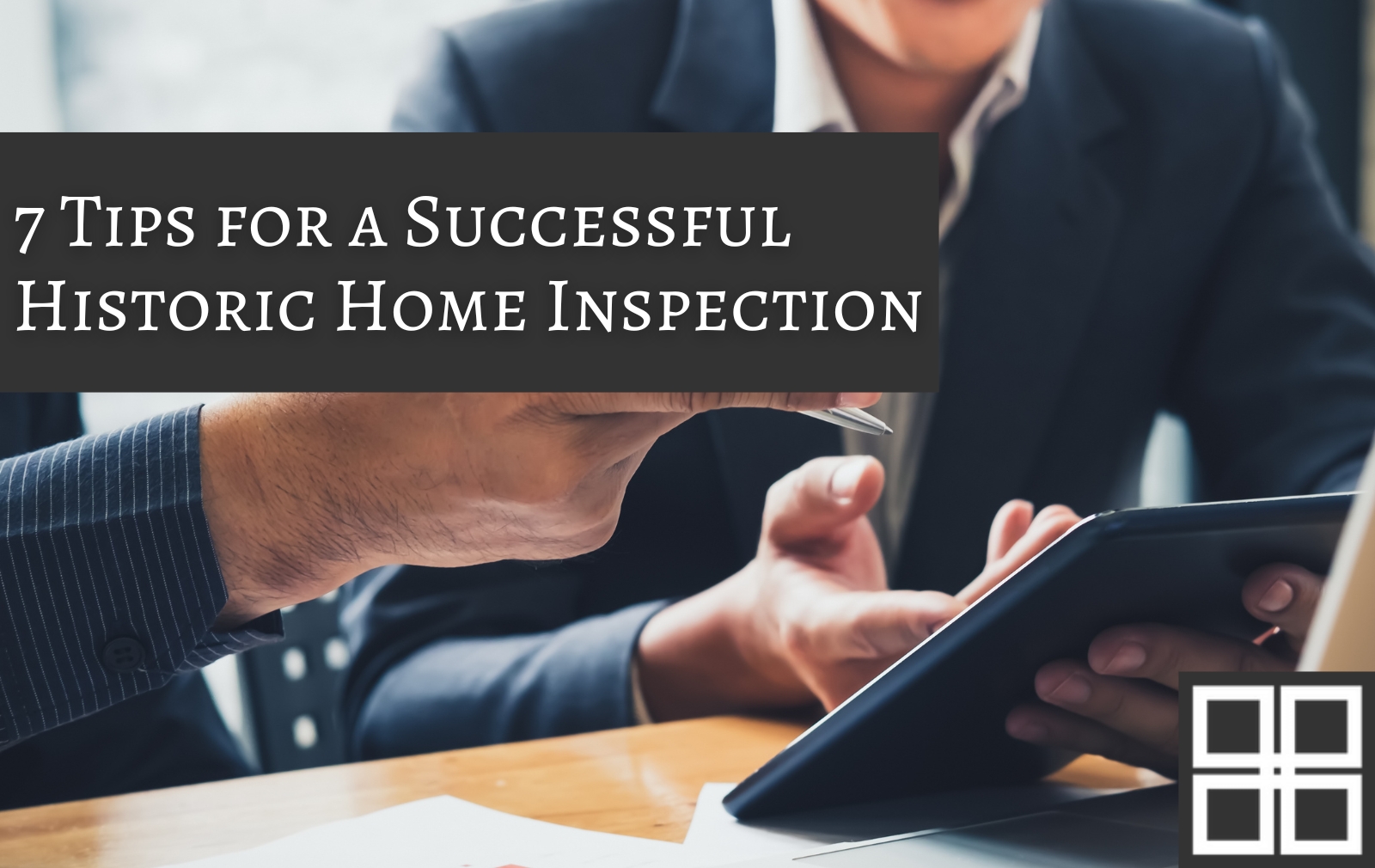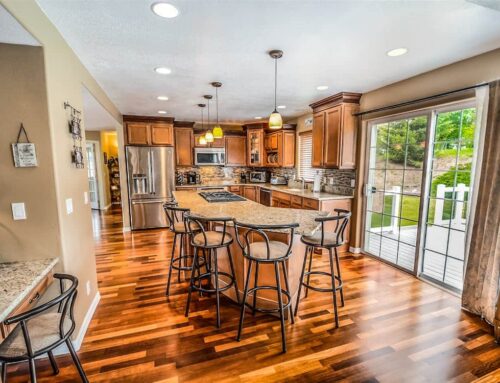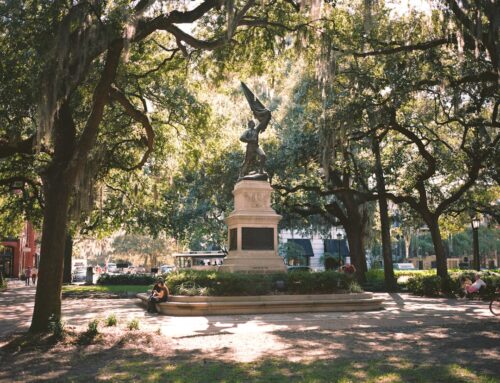7 Tips for a Successful Historic Home Inspection
There’s nothing quite like buying a historic home in Savannah. The wrought-iron balconies, heart pine floors, and ornate crown moldings tell stories of generations past. But beneath that Southern charm lies a complex structure that demands special attention during inspection. A historic home inspection in Savannah isn’t just a box to check—it’s your roadmap to preservation, renovation planning, and long-term investment protection.
Whether you’re eyeing a Victorian in Thomas Square or a Colonial in the Landmark District, these seven inspection tips will help you navigate Savannah’s unique historic home market with confidence.
1. Work With an Inspector Who Specializes in Historic Savannah Properties
Not all inspectors are created equal when it comes to historic properties. Seek out professionals with specific credentials in historic preservation and extensive experience with pre-1940s Savannah homes. These specialists understand traditional building techniques like tabby construction, can identify period-appropriate repairs versus modern shortcuts, and recognize the difference between charming patina and concerning deterioration.
A qualified historic home inspector will cost more—typically $600-800 compared to $350-450 for standard inspections—but the detailed assessment of historic elements will prove invaluable for your investment.
2. Examine Foundations and Floor Systems Carefully
Savannah’s unique coastal environment creates distinct challenges for historic foundations. Many older homes in the Historic District feature pier-and-beam foundations made of brick, tabby, or cypress—materials that interact with our humid environment in complex ways.
Your inspector should pay special attention to:
- Brick foundation piers for saltwater erosion (common in properties closer to the river)
- Wood joists for termite damage (Formosan termites are particularly aggressive in our climate)
- Floor slope patterns that might indicate ongoing settlement
- Water intrusion in crawlspaces due to Savannah’s high water table
Remember that some floor unevenness is expected in homes that have stood for a century or more, but structural engineers should evaluate any slope exceeding 1 inch per 20 feet.
3. Understand How Savannah’s Climate Affects Historic Homes
Between our subtropical humidity, frequent summer storms, and occasional hurricane threats, moisture management is the eternal challenge of Savannah historic homes. Your inspection should thoroughly assess:
- The condition of the roof, particularly around chimneys and dormers
- Proper attic ventilation to prevent moisture buildup
- Signs of previous flooding or water intrusion (especially in below-grade spaces)
- Functionality of gutters and downspouts
- Evidence of rising damp in masonry walls
Consider requesting specialized moisture monitoring during your inspection period. Modern humidity sensors placed in crawlspaces and attics can provide valuable data about the home’s moisture patterns over several weeks.

4. Investigate the History of Systems Updates
Historic homes in Savannah have often undergone multiple system updates throughout their lifespans. Your inspector should document:
- When electrical was last updated (knob-and-tube wiring still exists in approximately 30% of pre-1940 Savannah homes)
- The condition of the electrical panel (fuse boxes can limit insurance options and increase premiums by 15-20%)
- Plumbing materials throughout the home (galvanized and lead pipes may still be present)
- HVAC compatibility with historic structures (improper installation can create damaging condensation)
Request documentation of all permits pulled for previous work—unpermitted electrical work is common in older homes and can present significant safety hazards.
5. Know the Historic Designation and Preservation Requirements
Savannah boasts one of America’s largest urban Historic Districts, with varying levels of preservation oversight. Before your inspection, determine:
- If the property falls within the Landmark, Victorian, or Mid-Century districts
- Whether it has National Register designation or only local historic status
- Which exterior elements are protected under current preservation ordinances
- What window, door, and roofing restrictions apply
The Savannah Historic Foundation offers pre-purchase consultations for potential buyers (approximately $200) to understand these requirements before committing. Your inspector should note areas where preservation requirements might complicate necessary repairs.
6. Test for Historic Environmental Concerns
Savannah’s historic homes often contain materials once considered safe but now known to be hazardous. A comprehensive inspection should include:
- Lead paint testing (particularly important in homes built before 1978)
- Asbestos identification in floor tiles, pipe insulation, and ceiling textures
- Soil testing for properties where lead paint may have weathered into the yard
- Water quality testing to identify lead from old pipes or solder
The Coastal Health District offers resources for lead paint mitigation projects, and local environmental testing companies can perform specialized assessments beyond standard inspections.
7. Evaluate Energy Efficiency Challenges and Solutions
Historic homes weren’t built with energy efficiency in mind, but preservation-friendly updates can substantially improve comfort while preserving character. Your inspector should assess:
- Window condition and weatherstripping opportunities
- Insulation levels in accessible areas
- Ductwork condition and placement
- Areas where historically appropriate weatherization would have the biggest impact
Modern thermal imaging can identify energy loss patterns without disturbing historic materials. Consider requesting this additional service for a complete efficiency picture.
Embrace the Journey: The Rewards of Historic Home Ownership
Purchasing a historic Savannah home isn’t just a real estate transaction—it’s becoming a steward of architectural heritage. A thorough inspection illuminates not just problems but opportunities: to preserve craftsmanship, to honor history, and to create your own chapter in a continuing story.
With clear-eyed planning and the right team of specialists, your historic home can be both a sound investment and a source of pride. After all, in Savannah, we don’t just live in houses—we inhabit stories.
Need guidance navigating the unique challenges of historic home buying? The Heather Murphy Group combines preservation expertise with market insight to help you find the perfect historic property for your lifestyle and budget. Contact us today to begin your journey into Savannah’s storied past and your promising future.









